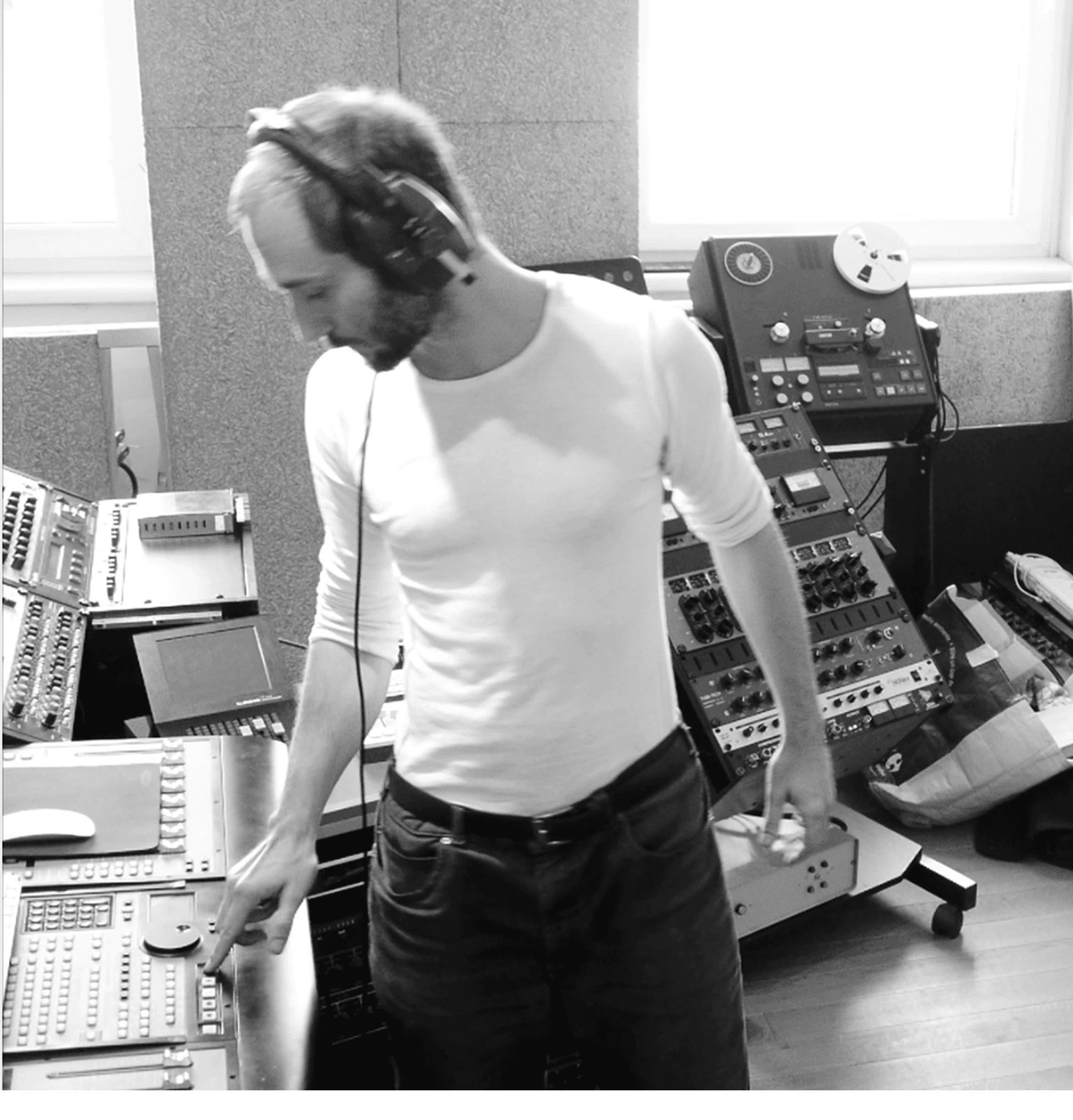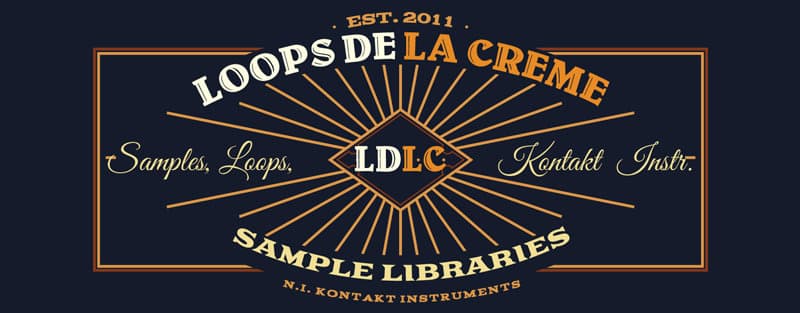Blog

How a broken arm led to a virtual instrument business
How one musician turned a football injury into a sustainable solo business selling sample libraries and virtual instruments to producers worldwide.
Julien Tauban broke his arm playing football in 2011. Within weeks, he had accidentally built the foundation for a business that would support him for the next 15 years.
The French musician had spent years doing every music job imaginable: DJ, composer, band leader, studio producer, music teacher. When the injury sidelined him from three of those jobs simultaneously, a friend suggested he do something with the massive collection of sound samples sitting on his hard drive.
Tauban created The Clap Pack, a collection of hand clap samples, and released it for free on Bandcamp. The product is now used by over 40,000 music producers worldwide.
"Within one day, I went to the forum and talked about it. And people were really like, wow, that's fantastic," Tauban recalls. "At the time, there was not so much quality material available."
Producers asked him to create a virtual instrument version. Within three months, he had built his first product: a collection of cymbal samples packaged as a playable virtual instrument. On launch day, he made enough money to realize this could become his full-time work.
That was almost 15 years ago. Tauban still runs Loops de la Crème alone, creating sample libraries and virtual instruments that reproduce acoustic instruments for music producers.
Moving from Bandcamp to SendOwl
Tauban joined SendOwl in 2014 after outgrowing his Bandcamp setup.
"I was using a Bandcamp website to distribute small sample libraries. It was like a workaround because I started distributing albums as a musician," he explains. "It actually took me by surprise because I wasn't expecting to make a living out of it. But pretty soon it got serious."
He needed a proper e-commerce solution that could handle larger file sizes and give him more control over his business. SendOwl offered payment processing, reliable file delivery, and the technical infrastructure to support products that could reach several gigabytes in size.
"I never got problems, no technical issues. It's been really running smoothly for me and my clients," Tauban says. "That's really something I appreciate."
Building a business on quality and customer service

Tauban's approach to his business centers on two principles: exceptional product quality and responsive customer support.
He owns over 600 instruments, which he records meticulously in his studio. Each virtual instrument takes several months to create, involving sample recording, photography, graphic design, programming, and extensive testing. Some of his products from 2014 still sell today because the quality hasn't been matched by competitors. Introductory and seasonal sales are also a big part of customer acquisition and retention.
On the customer service side, Tauban responds personally to every inquiry. When customers lose their downloads due to computer crashes or hard drive failures (which happens two to three times per month), he manually issues new download links.
"I thought, okay, I'll be better than the best that I could imagine," he says about his early approach to customer support. "Really, that was a good thing for me because it's a one-man company. You let people know that if they need information, I'm the one to contact."
A Black Friday strategy that actually works
Tauban has refined his Black Friday approach into a formula that consistently outperforms standard percentage discounts.
Customers need to build a shopping cart worth €158. When they do, they receive €100 back immediately. Not later. Not as store credit. As instant cash back.
"My products are priced from like €2 to €100 something. And so that means for my clients, that's a time when they will buy bigger products that they were not thinking about buying," he explains. "But suddenly it makes sense because they've got something in mind and then they just try to get over that mark."
The strategy works because €100 feels significant enough to motivate purchases of higher-priced items customers had been considering. His average cart value is normally €20-30. During Black Friday, every purchase brings in at least €58 after the cash back.
"It's worked well for me because even if it was like a 50 percent off, people wouldn't buy something that they didn't intend to buy in the first place," Tauban says.
Facing disruption and adapting
After 15 years of steady growth, Tauban faces a challenge he didn't anticipate: artificial intelligence.
"Within one, two, maybe three years, things are going to drastically change," he says about sample-based virtual instruments. "There's been a switch about six months ago where suddenly, if you want a violin for your track, you use AI and that's quicker and the results are great and convincing. It's a game-changer and a challenge for my industry."
His response isn't panic. It's gratitude mixed with pragmatic planning.
"I'm so grateful because it's been for me a dream job being self-employed, such a joy to do something that is my passion," he reflects. "I've been able to take care of family with this business. So I'm just grateful it worked for these years, and let's try to find the next step."
He's considering partnerships, exploring new product directions, and thinking about how to adapt his skills to whatever comes next in music production technology.
What works when you're doing it alone
Running a one-person digital product business for 15 years taught Tauban several lessons:
First, quality has to be non-negotiable. "I can at least go on and keep selling [products from 2014] because it was good at that time, it's not been equaled yet by anybody in the world," he says.
Second, customer relationships matter more than marketing prowess. "You've got to learn really," he admits about marketing, an area where he still struggles. But consistent responsiveness and fair treatment of customers built loyalty that sustained his business through economic changes and platform transitions.
Third, thinking long-term means being selective about what you release. Tauban refers to his available products as "just the tip of the iceberg." He has recordings and partially developed products from years ago that he held back because they didn't meet his quality standards or because the market wasn't ready. That archive now gives him options as he considers new directions.
"Only the best survive, and especially when you're on your own," he says.
His advice for anyone considering a similar path? Don't do it alone if you can avoid it. Find partners who bring different skills. Someone passionate about marketing. Someone who understands emerging technologies. Someone who thinks about money differently than you do.
But if you do go it alone, make quality and customer service your differentiators. And keep a stack of paper nearby for all your planning. After 15 years, Tauban has an entire shelf of project notes, to-do lists, and product plans, all handwritten.
"There's something about feeling it," he says about working on paper rather than screens.
If you are interested in getting in contact with Julien, please reach out here!
Dani is the GM of SendOwl. She joined in August 2025 after working with creators on platforms like Skillshare (creative education platform that mixed direct and UGC content creation) and Wattpad (UGC creative writing that funnelled stories, content and trends to Hollywood). She loves nothing more than helping creators turn dreams into money.
community
Join our newsletter for the latest tips, updates,
and exclusive offers to supercharge your digital product sales.


